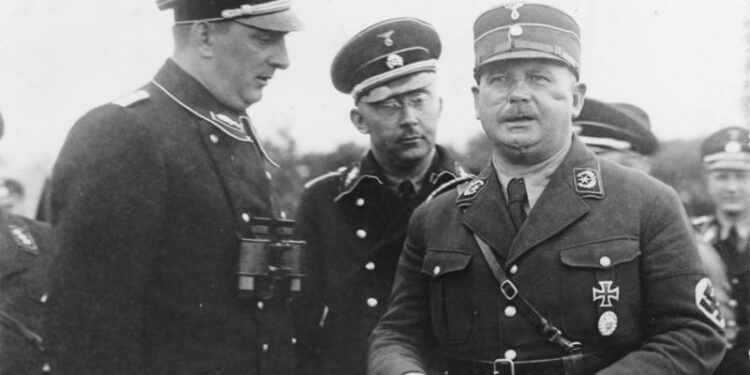The Night of the Long Knives, also known as Operation Hummingbird, was a significant event that took place in Germany from June 30 to July 2, 1934. This infamous event marked a turning point in Adolf Hitler’s consolidation of power and the establishment of his dictatorial rule.
The Night of the Long Knives targeted Hitler’s perceived internal enemies, specifically members of the Sturmabteilung (SA), also known as the Brownshirts. Led by Ernst Röhm, the SA was a paramilitary organization that played a crucial role in Hitler’s rise to power. However, as Hitler solidified his control, the SA’s influence and Röhm’s ambitions posed a threat to the stability of the Nazi regime.
Hitler’s decision to eliminate Röhm and his loyalists was driven by his desire to appease the German military and the conservative elites who viewed the SA as a radical and undisciplined force. Additionally, Hitler aimed to consolidate his authority and eliminate potential opposition within the Nazi Party.
On the night of June 30, 1934, the SS, led by Heinrich Himmler and Reinhard Heydrich, carried out a series of arrests and executions. Röhm and other high-ranking SA officers were targeted, along with political rivals and perceived threats to Hitler’s leadership. The purge extended beyond the SA, reaching individuals such as Kurt von Schleicher, the former Chancellor of Germany, and Gregor Strasser, a prominent Nazi figure.
The Night of the Long Knives saw the ruthless removal of approximately 85 individuals who were seen as obstacles to Hitler’s authority. Many were executed without trial, and the events sent shockwaves throughout Germany. The purge solidified Hitler’s control over the Nazi Party, allowed him to gain the support of the military, and sent a clear message that dissent would not be tolerated.
The Night of the Long Knives had far-reaching consequences for German politics and society. It marked a shift towards totalitarianism and highlighted Hitler’s willingness to use violence to maintain power. The event also consolidated the power of the SS and increased its influence within the Nazi regime.
Moreover, the Night of the Long Knives signaled the erosion of the rule of law and the emergence of a climate of fear and repression in Nazi Germany. It demonstrated Hitler’s ability to manipulate public opinion, as the regime presented the purge as necessary for national security and stability.
In conclusion, the Night of the Long Knives was a critical moment in Hitler’s consolidation of power. It eliminated internal opposition, solidified his control over the Nazi Party, and signaled the transformation of Germany into a totalitarian state. The event remains a stark reminder of the brutality and ruthlessness associated with Hitler’s regime.



Recent Comments